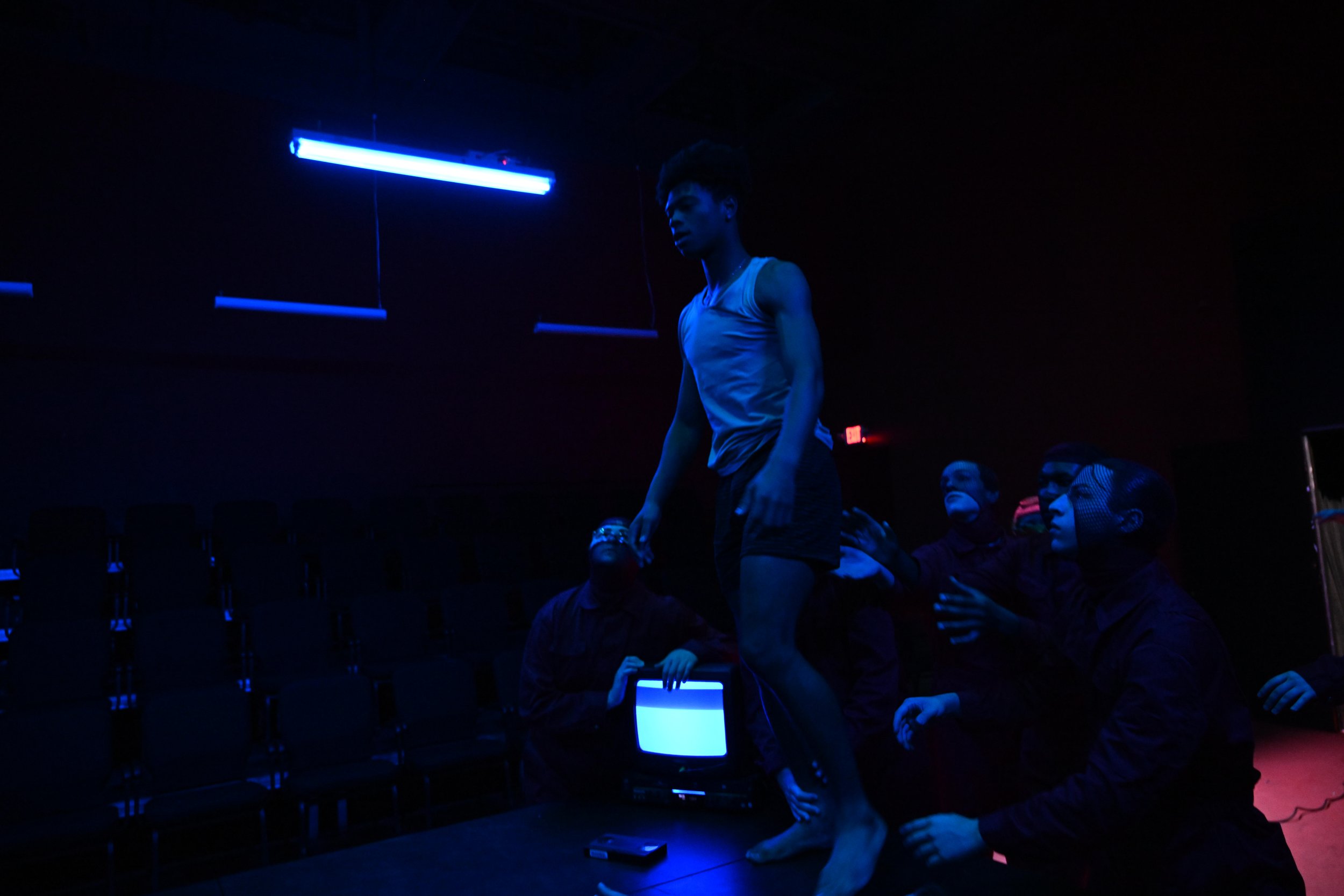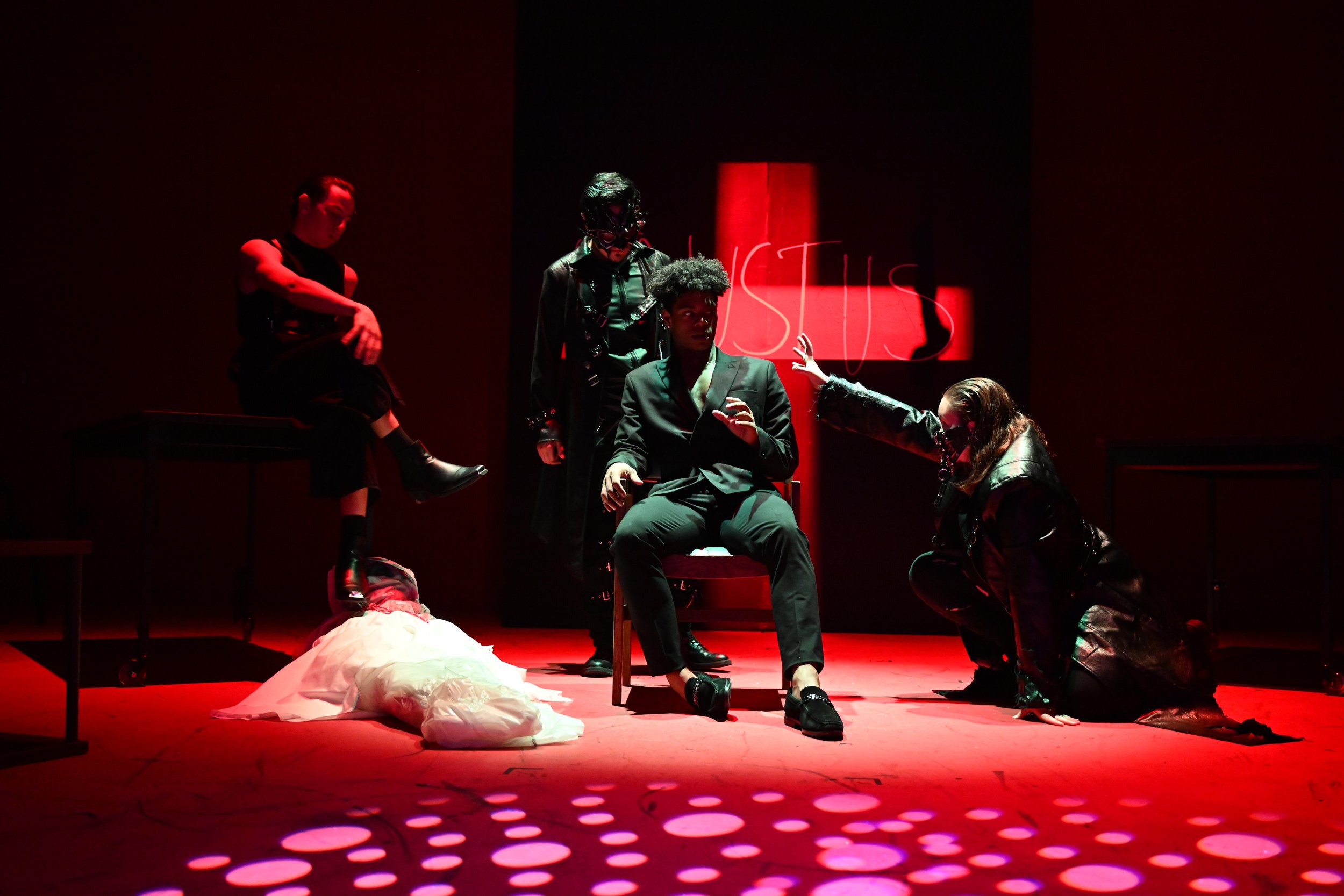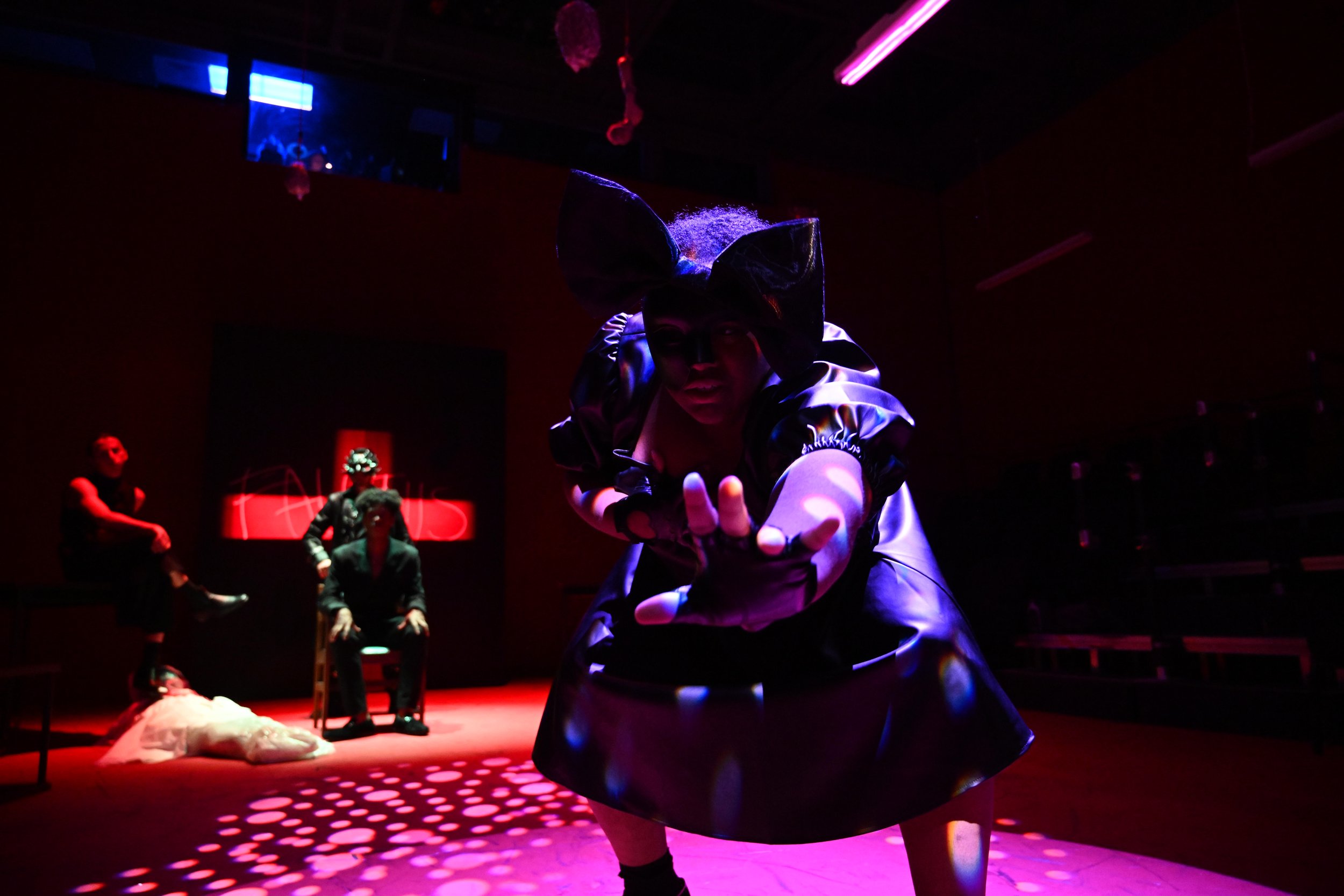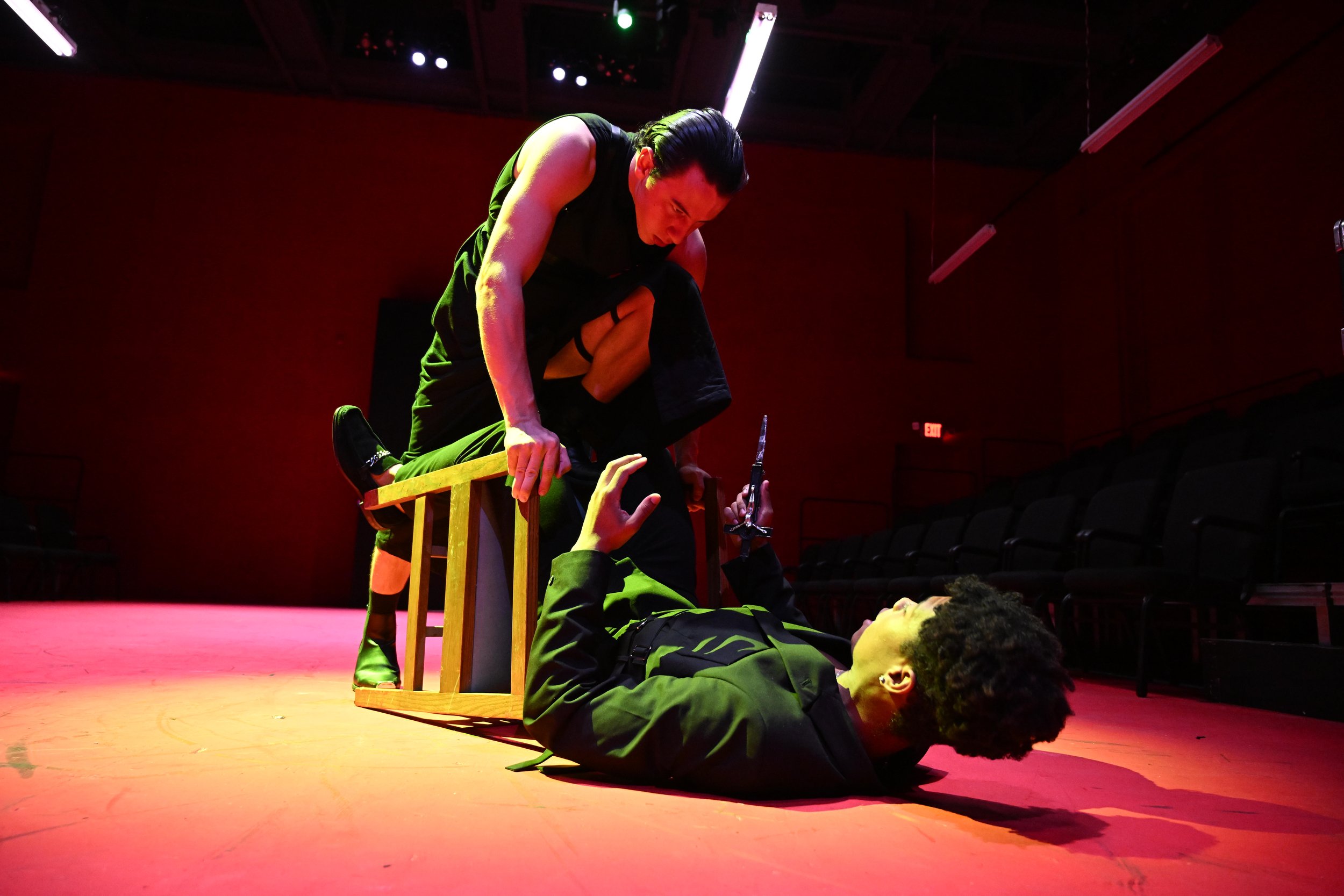
DOCTOR
FAUSTUS
by Christopher Marlowe
Salisbury University’s Bobbi Biron Theatre Program
Description: The current political demonization of queerness inspired me to explore and celebrate the literal demonization of queerness in Marlowe's Doctor Faustus.
Read the full director’s notes below the photo gallery.
Production Team:
Scenic Design: Andrea Sicoli
Lighting Design: John Raley & Grayson Crosby
Costume Design: Blake Harris
Associate Costume Designer: Chelsea Dean
Technical Director: J. Michael Desper
Assistant Director: Meghan Baker
Photos: Megan Raymond
I'm from Tennessee, a state that has enacted 14 anti-LGBTQ+ laws since 2015, the highest count in the country according to the Human Rights Campaign(hrc.org). As I prepared to direct two shows in my hometown this past summer, HB0009/SB0003 became law. It aimed to classify "drag" as adult entertainment, making it illegal in public spaces and in front of children. The law was so vague that trans individuals simply existing in public, a high school teacher directing Shakespeare's gender-swapped roles, or a drag performer walking to their car could all be arrested and given a felony. The law's vagueness was intentional, meant to create fear and limit LGBTQ+ visibility. Reagan-era stereotypes were revived, labeling drag queens and LGBTQ+ groups as "groomers," diluting the seriousness of assaults against children and endangering queer folx. The current political demonization of queerness inspired me to explore and celebrate the literal demonization of queerness in Marlowe's Doctor Faustus.
Christopher Marlowe, an openly "gay" (a term that didn’t exist yet) writer during a time when homosexuality was punishable by death, cleverly included transgressive themes in his 17th-century plays. In Doctor Faustus, he punks the Pope, ridicules Christianity (he was loudly atheist), portrays a close relationship between Faustus and Mephistophilis, and depicts moments of true debauchery, going directly against the rules for the Elizabethan stage. How did he get away with this? Marlowe's solution was to label everything as "bad" and punish Faustus in the end, thus using a morality tale to deliver the wild entertainment audiences craved.
If we play with Marlowe’s inverse approach to storytelling, it is a fun thought exercise to explore if the “evil” things in this world can also inverse and all things bad are good. This approach shaped the production, creating a world where being the warned "evil" seemed more appealing. In Christian mythology, the original sin was accessing full knowledge. What was the first thing this knowledge revealed? According to Genesis 3:7 (KJV), “And the eyes of them both were opened, and they knew that they were naked; and they sewed fig leaves together, and made themselves aprons.” From the implied beginning of time, bodies and sexuality are accessed only through knowledge, and accessing both is considered sinful.























